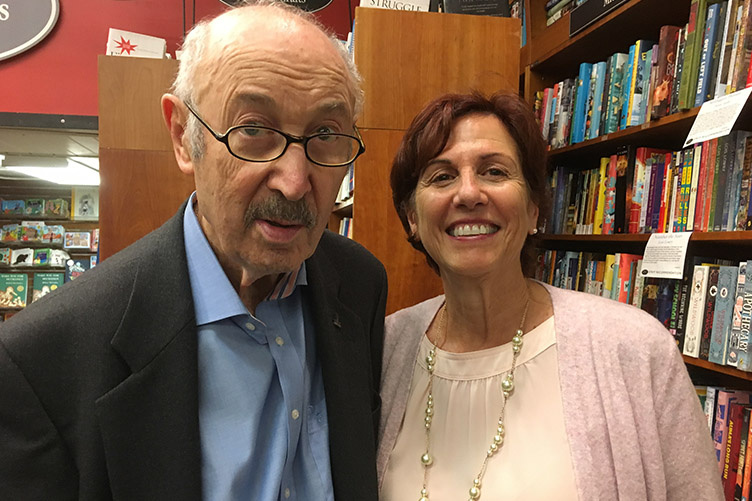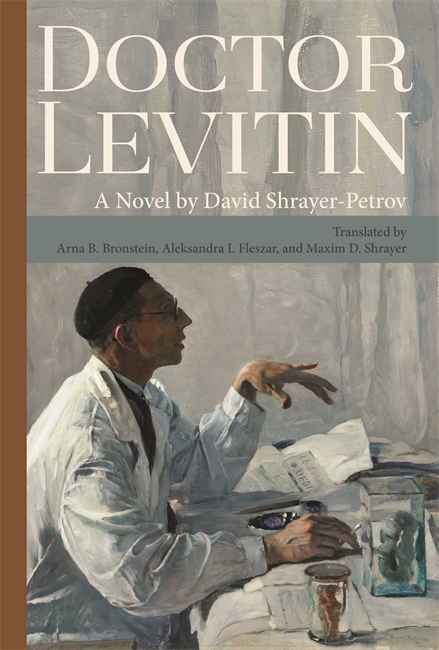
Author David Shrayer-Petrov and Professor Arna Bronstein at the The Harvard Bookstore, fall 2018. Photo courtesy of Maxim Shrayer.

Translated by Arna B. Bronstein, Aleksandra I. Fleszar, and Maxim D. Shrayer
Wayne State University Press, 2018
UNH Russian professors Arna Bronstein and Aleksa Fleszar have produced the first English translation of “Doctor Levitin,” by David Shrayer-Petrov. The publication is the first novel available in English that depicts the experience of the Jewish exodus from the former Soviet Union. It was co-translated by the author’s son, Maxim Shrayer, a Boston College professor.
Author and medical scientist Shrayer-Petrov was born in Leningrad in 1936 and immigrated to the U.S. in 1987. His personal experience with anti-Semitism and the harassment and obstruction that followed his application to leave Russia in 1979 served as the raw material for the novel.
“I met the writer David and his son Maxim several years ago when I was teaching the course, Jewish Voices in the Russian Empire,” says Bronstein. “I emailed Maxim for advice and then arranged for Maxim and David to come to UNH to meet with my students.”
It was during that visit that the idea of translating Shrayer-Petrov’s work arose. Bronstein and Fleszar first translated his short novel, “Strange Danya Rayev,” and, later, his short story, “Dinner with Stalin.”
“The translation of the work ‘Herbert and Nelly’ — of which ‘Doctor Levitin’ is the first of a trilogy — has been a labor of love,” says Bronstein. “This trilogy is about the struggle of Soviet Jews and refuseniks during the late 1970s and early 1980s, with the main protagonist, Doctor Levitin, his non-Jewish wife and their teenage son, applying to leave the Soviet Union due to the anti-Semitism of the Soviet regime. This personal story is an insightful reflection of the plight of Soviet Jewry of that time, and as such we felt it was important work to be available to an English-speaking audience.”
The same translation team is currently working on books two and three of the trilogy, which are entering their final editing phases.
Bronstein and Fleszar have co-authored Russian textbooks, including “Making Progress in Russian,” and have translated several other works of fiction and nonfiction from Russian.
Read an article about “Doctor Levitin” and its author at Jewish Telegraphic Agency, or JTA.org.
Learn what it takes to be a Russian major.
-
Written By:
Susan Dumais '88 '02G | College of Liberal Arts
















































